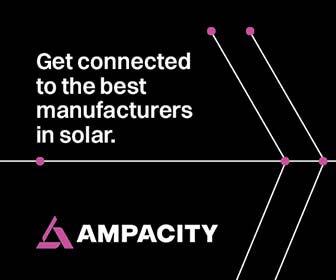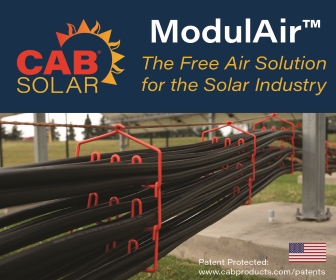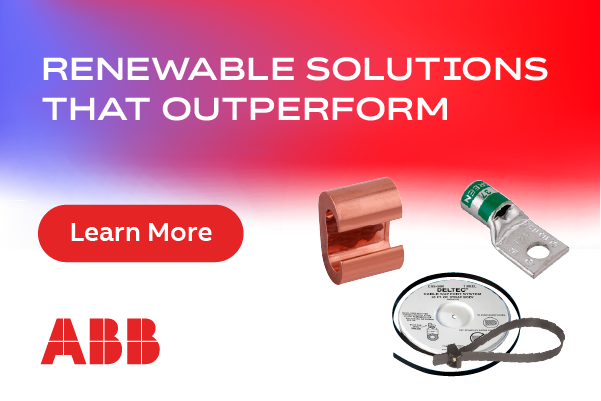Ready for the Global Green Rush?
The growing renewable energy sector spurs a need for reliable, low-cost, manufactured parts to compete with fossil fuels without subsidies or regulation
Globally, renewable energy is near a tipping point. It is poised to move from subsidized, regulated alternative energy to clean, green renewable energy able to compete head-to-head with fossil fuels and nuclear based on price, with or without subsidies or regulation.
The international nonprofit renewable energy policy network, REN21, published their Renewables 2014 Global Status Report noting, “Renewable energy provided an estimated 19% of global final energy consumption in 2012, and continued to grow in 2013.” According to the report new renewable power capacity surpassed new fossil fuel and nuclear capacity for the first time in China and renewables represented the majority of new electric generating capacity for the sixth consecutive year in the European Union.
While the global growth of the renewable energy sector is undeniable, much of that growth has been aided by energy support policies at the national, state, or local level. Unfortunately, when such aid is inconsistent, withdrawn, or the falling cost of fossil fuels makes renewable energy less competitive, renewable energy companies can face slack demand which disrupts their business model.
To truly sustain a global green rush in the renewable energy sector, what’s needed now is reliable manufacturing capability able to drive down cost and ramp up parts production to mass scale, along with consultative manufacturing partners that can help reduce overhead, and improve design and manufacturability.
Moving Beyond Subsidies
One challenge of renewable energy innovators, particularly start-ups, is that while they aim to efficiently convert natural resources into energy, they often have limited resources and manufacturing expertise. Price is always an issue, especially with unreliable renewable energy subsidies and supportive regulations that come and go.
Fortunately, renewable energy OEM’s latest competitive advantage, it turns out, is one-stop, domestic outsourcing of precision metal fabrication, which is much more efficient than doing it all in-house or subcontracting to layers of vendors, each taking their slice of profit and adding weeks of lead time. Full-service metal fabrication under one roof can, in fact, help reduce overhead, improve design and manufacturability, and streamline the renewable energy OEM’s supply chain.
Typically, solar power dishes have been pressed using a hydroforming process from a single aluminum sheet, which has high start-up costs. With the help of a full-service partner, a forming jig process welds aluminum dish pieces together to build the dishes as fast as hydroforming, but with lower start-up costs.
Each of these large solar concentrator dishes is capable of delivering 33.5 kW of thermal power, 14 kW of electricity, or a combination of the two. The large and small solar concentrator dishes are designed to meet the power, hot water, HVAC, and process heating needs of industrial, institutional, commercial, and agricultural customers.
Smaller machine shops typically buy in small quantities from metal service centers that include a middleman mark-up. Larger metal fabricators, on the other hand, have the buying power to purchase large quantities direct from the mill. These savings are then passed along to the OEM.
It makes sense for renewable energy OEMs, particularly start-ups, to outsource their parts manufacturing to a reliable full-service partner that can, not only help improve their design and manufacturability, but also flexibly meet demand, bring down their unit price, and enable quick production ramp up.
Compared to waiting on multiple vendors in multiple locations, shipping, and product to be finished, relying on a one-stop, full-service vendor optimizes manufacturing and supply logistics, helping to save about 15-20% in costs by eliminating unnecessary layers of subcontractor profit, shipping, packaging, accounting, and follow up and also saving at least 4 to 6 weeks of delivery time. Having one point of contact to quickly resolve any potential quality, production, or delivery issues, if necessary is another competitive advantage.
A business model will finally catapult the renewable industry past sporadic fits and starts: renewable energy innovators that focus on their core competence of system design and marketing, while partnering with reliable full-service parts manufacturers to lower unit cost and ramp up production, and then the global green rush will truly begin.
Gary Romig is the founder and CEO of Summit Steel and Manufacturing, a Reading, PA based metal component fabricator. Summit Steel provides services including 2D and 3D laser cutting, CNC turning/milling, and Swiss machining, centerless grinding/polishing, as well as bending/forming, powder coating, robotic and manual welding, and assembly.
Summit Steel and Manufacturing | www.summitsteelinc.com
Volume: September/October 2015









.png?r=7679)


